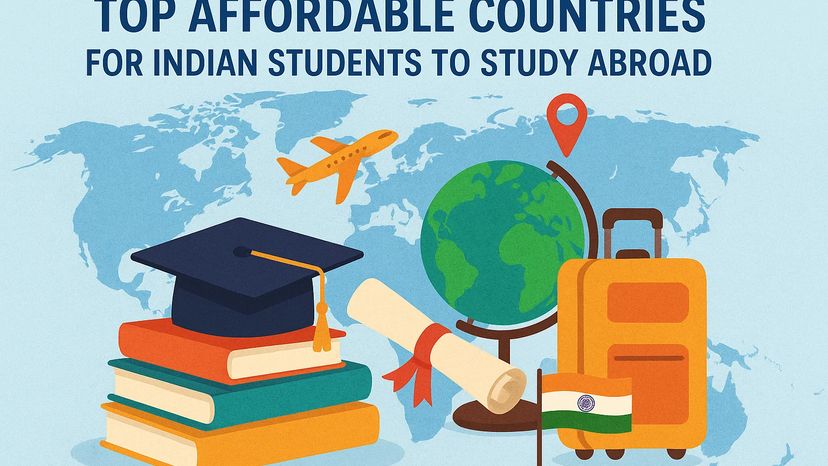MBA Overview: Admission, Syllabus, Fees & Future Prospects
You can be intimidated about a career decision, especially in a competitive, high-stress environment. While considering their future vocation, some of the students are bound to wonder: What's next? How do I decide? One of the biggest decisions many students ever have the opportunity to make is whether they should pursue an MBA. But before they reach that determination, they need to know about the MBA full form, specializations, admission process, fees and future opportunities.
At Infigon Futures, we realize that every career is not just a job. It's a story! This blog will be your ultimate guide to everything you need to know about the MBA full form in English, its potential and how our professional career counsellors can help you come to an informed decision.
What Is MBA and Why Is It Important?
The MBA full form is Master of Business Administration, a degree that prepares future leaders, entrepreneurs and managers. However, an MBA is not only about textbooks and boardrooms, MBA courses provide people with problem-solving abilities, strategic thinking and confidence to overcome a world of changing industries and constantly shifting markets.
Curious about what is MBA course and what is the qualification for an MBA is? The answer lies in its accessibility. An academic background in business is not essential to pursue an MBA program. Whether you studied arts, science, or commerce, this professional degree is for those ready to lead.
Types of MBA Courses: Finding the Right Fit for You
No two students are the same. That’s why there are various MBA courses to suit diverse needs and aspirations. Whether you’re a fresh graduate or a working professional, the types of MBA courses list ensures there’s something for everyone.
Most Common Types of MBA Courses:
- Full-time MBA – Traditional 2-year program
- Part-time MBA – Ideal for working professionals
- Executive MBA – Tailored for experienced professionals
- Online MBA – Flexible and remote
- Integrated MBA – A 5-year program after 12th
Confused about how many courses in MBA or which MBA groups list fits you best? Our career counsellors at Infigon will help you match your interests and strengths with the right MBA program courses.
MBA Course Duration and Eligibility
Let’s simplify it. The typical MBA course duration is 2 years, incorporating experiential learning through case studies, internships, interactive workshops, and practical projects.
MBA how many years? It's generally two, although executive MBAs may take less time.
You’re eligible for an MBA if:
- You have a bachelor’s degree in any stream
- You’ve cleared an entrance exam like CAT, XAT, MAT, or GMAT.
If you’re in school and wondering, can I do an MBA after the 12th? You can! Opt for a 5-year integrated MBA program right after Class 12. Let Infigon guide you through how to plan early, prepare, and choose the best path.
MBA Syllabus and Subject Details
Every MBA course full details typically features a combination of foundational core subjects and specialized elective courses. The goal? To equip you with knowledge and skills that are relevant, practical, and globally accepted.
Common Subjects in an MBA:
- Financial Accounting
- Marketing Management
- Organizational Behavior
- Human Resources
- Strategic Management
- Business Ethics
During the first year, students engage with core foundational subjects common to all specializations. The second year focuses on specialisations such as MBA full form in finance, marketing, HR, IT, or operations.
Need the MBA 1sem syllabus or curious about how many subjects are there in the MBA? At Infigon, we provide accurate, up-to-date course content from top universities and explain it in simple terms.
MBA Fees and Top Colleges
Investing in an MBA is a big decision—emotionally and financially. Knowing the MBA fee structure and finding the right college can feel like a puzzle. Here’s a helpful overview:
Popular Universities and Their MBA Fees:
- Parul University MBA fees: ₹1.5–2 Lakh
- Sharda University MBA fees: ₹2–3 Lakh
- Loyola College MBA fees: ₹4–5 Lakh
- Integral University MBA fees: ₹1–2 Lakh
- Dibrugarh University MBA fees: ₹40,000–60,000
- Allahabad University MBA fees: ₹25,000–40,000
Navigating the MBA form, entrance test timelines, and admissions process can be stressful. Our Infigon career counsellors ensure you never feel alone during this journey.
Career Scope After MBA: What Comes Next?
The real power of an MBA lies in what happens after the classroom. This professional course opens doors to rewarding careers in every sector—finance, IT, healthcare, startups, government, and beyond.
With an MBA degree full form under your belt, you can:
- Become a Business Analyst, Product Manager, or HR Leader
- Launch your own startup.
- Pursue roles in consulting or international business.
Wondering if an MBA is a degree or diploma? It’s a professional degree with global recognition. Curious about which MBA comes under which stream? It's commonly associated with commerce but welcomes all streams.
Frequently Asked Questions (FAQs)
Q1. What is the full form of an MBA?
The MBA full form in English is Master of Business Administration. It is a professional degree in business and management.
Q2. What is the MBA course about?
It teaches business strategies, leadership, financial analysis, and decision-making. MBA full information covers marketing, HR, finance, and more.
Q3. What is the MBA course duration?
The standard MBA course duration is 2 years. Some executive MBAs take 1 year.
.
Q4. Can I do an MBA after the 12th?
Yes, through a 5-year integrated MBA program. Infigon can help you explore and apply the best options.
Q5. How many courses are in the MBA?
There are various MBA courses with 30+ specialisations. MBA full form are popular in finance, marketing, HR, and IT.
Q6. What are the best courses for MBA students?
Highly relevant courses are on entrepreneurship, digital marketing, project management, and supply chain.
Q7. How to apply for an MBA?
Register for entrance exams (CAT, XAT, GMAT), complete the MBA form, and apply to universities. Infigon guides you through every step.
Q8. Is the MBA a professional course?
Yes, an MBA is a professional course, and its full-form MBA degree is globally recognized.











